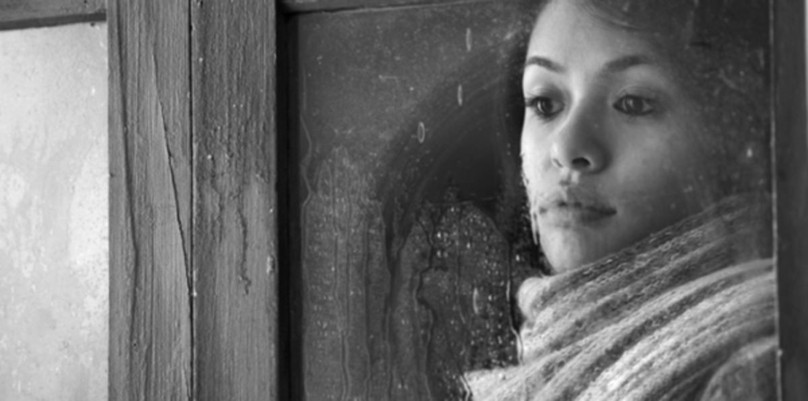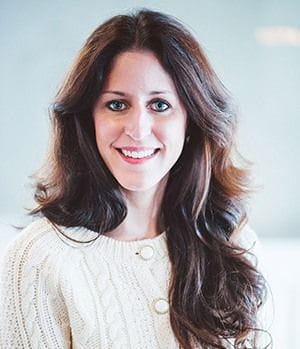
The other day I heard another friend’s story about anxiety, and as I listened intently and identified with what she was saying — how it started young, how she could remember as early as elementary school worrying about math homework and kissing boys and who was friends with who, how the fear seemed to grip her with power disproportionate to the things she was afraid of, and how it had continued on into adulthood, sometimes crippling her from normal, daily activities — I started to wonder about the origin of anxiety.
We were both raised in Evangelical families, and we’re not the only ones I know who were raised this way and suffer from similar struggles. In fact, sitting in church, sometimes I look around and think about the sheer number of my peers sitting next to me who have also struggled with anxiety and depression.
The connection between religion and anxiety isn’t totally far-fetched. The emphasis on performance in religious environments, intended or not, creates an expectation for moral living that at times feels impossible to meet. Similarly, the sense that moral failure is attached to punishment creates a tendency in us to punish ourselves when we fail to live up to our own impossible standard.
In addition, the way the church talks about anxiety has been, in my experience, largely unhelpful. Most of the conversations I’ve heard in church address the common affliction of anxiety with Bible verses that don’t offer any tangible solution to the problem at hand. The verses and pastors rightfully assess that worry is useless, that it “can’t add a single day to your life,” and that we should collectively quit worrying. But what about the person who doesn’t feel like he or she has any control over his or her worry?
My dad is a clinical psychologist, so I grew up with conversations about the subject that were likely more in-depth than most. And what my dad has always said about anxiety is that it acts like a red flag for guilt. When someone tells him they are struggling with anxiety (like I did for many years, and still do sometimes) he wants to help that person determine what it is they’re feeling guilty about. Anything that heightens a sense of guilt is going to heighten a sense of anxiety, my dad would say.
Is it possible that the Christian faith makes people more prone to guilt?
On the one hand, the Christian faith, or a relationship with God at least, should provide a certain absence of guilt. It should be a source of peace and rest, shouldn’t it? On the other hand, I can’t be the only one who has experienced church environments, or “Christian” environments, that seem to be a breeding ground for guilt itself. Of course, this is not the ideal way for our Christian community to function, but it’s easy to see how messy interpretations of scripture lead us to wrong or confusing conclusions.
For example, money seems to be the source of anxiety for many Christians. Some Christians have money, others don’t, but no matter the side of spectrum you happen to land on, it seems like we’re all made to feel guilty for our circumstances. If you’re wealthy, Christians love to tell you that “rich” people have as good a chance at getting into heaven as a camel does at getting through the eye of a needle, which doesn’t seem like a very good chance if you ask me. At the same time, if you’re poor, Christians love to talk to you about being a good steward of what you have, and may even warn you that you’re doing something to block God’s blessing.
Another conversation along these same lines is the conversation about sex before marriage. As a young Christian, I was encouraged to wait for sex until I was married and chose to embrace this commitment wholeheartedly—that is, until I realized very few of my peers were embracing it with me. I learned if I wanted to get real advice about my sex life (or lack thereof) I was going to have to talk about my honest experiences. But if I talked about my honest experiences, I discovered quickly, I would be treated as someone on the “outside” of my church community.
Is the inability to have an honest conversation about our questions, and even our shortcomings, contributing to our guilt and our anxiety?
For the longest time I felt like there was nothing I could do with my anxiety, especially in the church, so I hid it. I didn’t feel like anyone understood. And the more I hid my anxiety, the more anxious I became, and the more anxious I became, the more condemned I felt every time I stepped foot in church and was commanded, “Do not be anxious about anything...” What I didn’t realize was I wasn’t the only person who was facing this same struggle, not by a long shot.
Not only was I joined by many of my peers, but also David in the Psalms, who on multiple occasions was honest with God about his feelings of inadequacy, fear, abandonment, and desperation. These moments in the Psalms appear as temporary blips in David’s faith, but it was only when he was honest about his feelings he was able to move beyond them to a stronger, more mature relationship with the God he worshiped.
Attitudes which limit guilt and therefore limit anxiety are attitudes like trust, honesty, compassion, and community. I’ve been apart of Christian circles that foster these mentalities, and also those that don’t. The same is true for the secular communities I’ve been apart of.
So perhaps the way to combat anxiety is not to focus on the guilt or anxiety itself, but to join and/or work to build communities that foster these attitudes. For those who struggle with anxiety, it might help to know that you are not alone. Throughout history, others have suffered from similar feelings of sadness, fear, stress, guilt, and even anger at God, including David himself.
The more we can find space to be honest about the feelings we are having, the less likely these feelings will have power over us and manifest in the form of anxiety.



